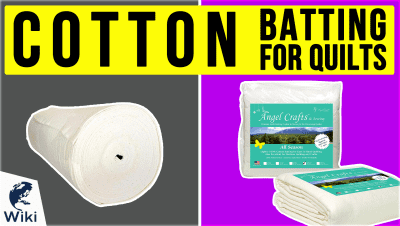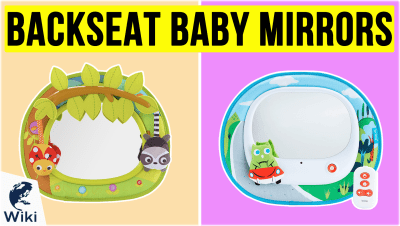5 Organizations Working To Make Urban Spaces Greener
Cities are generally known for having tall buildings, paved streets, and densely packed living spaces, but urban areas can be more than just concrete and asphalt. Bringing more gardens and parks into these spaces can help people spend more time outdoors, produce more local food, and make their community more environmentally friendly. The organizations listed here work to help neighborhoods across America plant more gardens, orchards, and tree canopy. This video was made with Ezvid Wikimaker.
Groups Helping Cities Go Green
| Name | Location | Mission |
|---|---|---|
| Philadelphia Orchard Project | Philadelphia, PA | Plant and support community orchards in the city of Philadelphia |
| Sustainable Jersey City | Jersey City, NJ | Educate, empower, and activate community stakeholders, to make Jersey City a more sustainable and resilient place to live and work |
| Love & Carrots | Washington, DC | Expose as many people as possible to sustainable practices and smart growing, so they can use that knowledge themselves and share it with others |
| Roanoke Parks and Recreation | Roanoke, VA | Manage parks, plazas, greenways, and public green space in the Roanoke Valley and offer recreation programs |
| Louisville Grows | Louisville, KY | Foster green, just, and sustainable neighborhoods in Louisville |
Tips For Starting Your Own Garden
- Make sure you have all the tools you need
- Keep everything organized so nothing gets lost
- Use a stool to stay comfortable while you work
- Or avoid crouching down altogether by having a raised garden
- Light the garden so that you can enjoy it at night as well
- Remember to mark your plants so you know what you're growing
- If you're having trouble with pests, put up a fence
- Prune your plants regularly
- If you don't have a good environment outside, try growing an indoor garden
Why We Should Be Urban Farming
5 Benefits of Parks
- Bring trees and other plants to urban environments
- Give people a place to be physically active
- Increase property values
- Protect and preserve wildlife
- Host community events and social programs
Reasons To Spend Time Outdoors
- Sunlight is a natural source of vitamin D
- In the winter, leaving the house can lessen the effects of Seasonal Affective Disorder
- Hiking is a great way to stay physically active
- Walking in the fresh air can help with mental health
- It's a great opportunity to learn about local plant and animal species
- Going outside may be good for children's vision
The Garden Awakening
In Depth
There are numerous benefits to connecting with nature, but access can be harder for those who reside in urban areas. Some groups are making changes in their local cities to combat this issue. In no particular order, here are a few organizations that are bringing more plant life to neighborhoods across the United States.
First up, at #1, we have the Philadelphia Orchard Project. This nonprofit organization has been working with community-based groups and volunteers to plant orchards filled with edible plants since 2007. The group works in formerly vacant lots, community gardens, schoolyards, and other urban spaces to increase access to local produce.
The Philadelphia Orchard Project provides design assistance, plant materials, and training, while the community organizations they work with own and maintain the orchards. This group envisions green urban ecosystems that will provide hands-on learning experiences and grow fresh fruit for future generations.
This group envisions green urban ecosystems that will provide hands-on learning experiences and grow fresh fruit for future generations.
Next up, at #2, we have Sustainable Jersey City, a catalyst organization with a mission to educate, empower, and activate community stakeholders to make Jersey City a more resilient place. This collaborative network has multiple projects in the works with a focus on three hubs of activity: emissions reduction, green infrastructure, and waste streams.
Visitors can find support for community-based composting through informational workshops, advocacy, and local partnerships with community gardens. Sustainable Jersey City has long been a partner to the Jersey City Gardening Coalition, providing technical assistance to help maximize productivity and sustainability of different sites.
At #3, we have Love and Carrots, a company in the D.C. Metro area that offers garden design, installation, maintenance, and coaching through one-on-one lessons with an assigned Urban Farmer. Since 2011, this organization has been providing assistance in crafting organic gardens to make urban environments more conducive to healthy living.
Since 2011, this organization has been providing assistance in crafting organic gardens to make urban environments more conducive to healthy living.
Love and Carrots aims to educate as many people as possible about green practices and smart gardening and raise awareness about sustainability and biodiversity. Using a hands-on approach, it strives to get people excited about eating fresh, healthy food while showing why actions such as going organic and eating locally are important.
Coming in at #4, we have The City of Roanoke's Department of Parks and Recreation, a nationally accredited municipal agency that maintains about fourteen-thousand acres of public land. Of that, Roanoke, Virginia has more than thirteen thousand acres of tree canopy.
Roanoke has been designated a Tree City USA for its plant management program. The Urban Forestry team provides regular maintenance based on staff observations or by citizen request. This group hosts an annual Arbor Day celebration and has an Urban Forestry Plan adopted by the City Council. In addition, Roanoke has entire teams dedicated to landscape care, turf maintenance, and downtown beautification, among other efforts.
The Urban Forestry team provides regular maintenance based on staff observations or by citizen request.
Next, at #5, is Louisville Grows, a non-profit focused on rebuilding the urban tree canopy in food-insecure neighborhoods in West Louisville, Kentucky. It aims to plant one-thousand trees each year and works with residents to start community gardens and gathering spaces.
Louisville Grows works in solidarity with each neighborhood to identify beneficial garden structures to enhance health and sustainability. Neighborhoods have installed beehives, fruit trees and bushes, greenhouses, community gathering spaces, and more. Programming, workshops, and classes are usually hosted at Healthy House, the organization's headquarters, where the community can learn about healthy eating, environmental education, and environmental equity.














